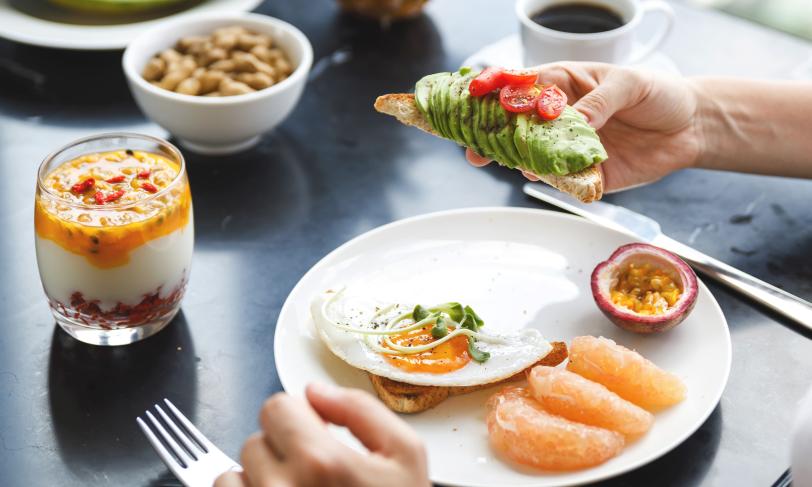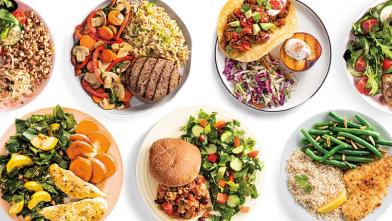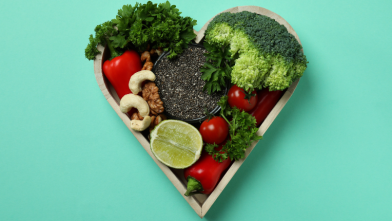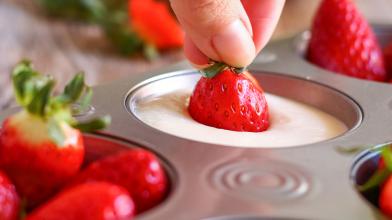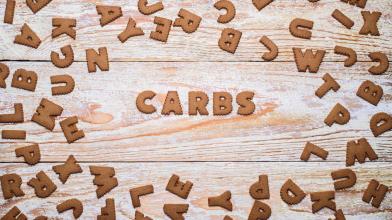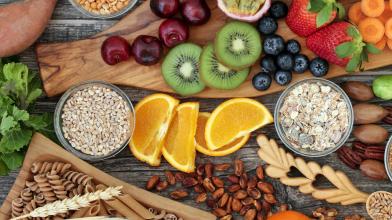You often hear that breakfast is the “most important meal of the day” (truth be told, all meals are important to your diabetes management). It can also be the most confusing for people with diabetes. Traditionally, American breakfasts may include high-carb and low-fiber foods like bagels, cereal, pancakes, muffins, bacon—not great choices for managing diabetes.
Research confirms that eating breakfast is generally a good idea—it can help with weight management, feeling fuller throughout the day, and keeping blood glucose (blood sugar) in your target range.
Keep in mind, just because breakfast is an important meal, it doesn’t mean it has to be an elaborate one. It can be as simple as a piece of whole grain toast with mashed avocado or peanut butter, string cheese and a handful of nuts, or a hardboiled egg and a piece of fruit. Let’s explore other breakfast options that are best for diabetes management.
4 Tips for Building a Healthy Breakfast
What works for you for breakfast will depend on your personal meal plan, food preferences, health goals, schedule, and budget, but here are a few tips for building a healthy breakfast:
- Be carb conscious. Carbs have the greatest impact on blood glucose. The total amount of carbs you should have at breakfast will depend on your personal meal plan, diabetes medications, and blood glucose trends (which help to determine how your body handles carbs in the morning). A lot of traditional breakfast foods contain carbs, so it’s important to keep track of how many you’re eating. Cereal, milk, and fruit all contain carbs and can add up quickly when combined. And a single bagel can have upwards of 50g! Monitoring your blood glucose before and two hours after eating will help you gather data to make informed decisions on your best breakfast food choices.
- Choose whole grains. If you choose to have grains at breakfast, such as bread or cereal, read the Nutrition Facts label for the serving size and total grams of carbohydrate and fiber. Choose foods that are whole grains and higher in fiber. A good source of fiber equals 2.5–4.9 grams per serving and an excellent source of fiber equals 5 grams or higher per serving.
- Choose healthy fats. Fats can help you feel fuller for longer—but choose wisely. Bacon, sausage, and eggs fried in butter are all high in saturated fats which can increase your risk of heart disease. Instead, use a cooking spray to coat the pan to fry your eggs and choose turkey bacon or chicken sausage instead of their pork counterparts.
- Include lean protein and fiber. One of the main goals of breakfast is to keep you full until lunchtime. Protein and fiber digest slowly and stave off hunger hormones so you feel fuller for longer. A breakfast high in protein and fiber may help reduce cravings before lunch and keep blood glucose in range.
Lean protein options:
- Eggs. You can prepare eggs in many ways, including hard boiled (which makes a great portable option), poached (a great way to cook without adding any fat), and scrambled or fried (made with cooking spray instead of butter).
- Greek yogurt. Plain Greek yogurt typically has more protein and fewer carbs per serving than regular yogurt. Buy plain unsweetened yogurt and add your own flavorings with spices, nuts, or a quality carbohydrate like fresh fruit.
- Cottage cheese. Eat low-fat cottage cheese plain or topped with fresh fruit for something sweet. Remember to count the amount of carbohydrates in your serving of fruit. If you are looking for something savory, try adding chopped tomato, cucumber, and a sprinkling of dill to your cottage cheese.
- Nuts or nut butter. Add nuts to yogurt, top toast with peanut butter and cinnamon, or dip apple slices in your favorite nut butter.
- Tofu. You can make vegan scrambled “eggs” with crumbled tofu, or add silken tofu to a smoothie for a protein boost.
High-fiber options:
- Oatmeal and other whole grain breads or cereals.
- Fruit, especially berries, apples, pears, and avocado.
- Seeds like chia, flax, or hemp. Adding one to two tablespoons to a smoothie, cereal, or yogurt is an easy way to boost fiber in your breakfast.
- Beans. While less popular in American, baked beans on toast is part of traditional English breakfast. Or, try adding black beans or pinto beans to a breakfast burrito or breakfast hash.
Diabetes-Friendly Breakfast Recipes:
Only 240 calories but loaded with healthy fats, protein, and fiber that will keep you feeling full until lunch.
A Saturday morning favorite made healthier by using ground oats instead of flour for a fiber boost.
Blueberry Lemon Yogurt Parfait
Make these parfaits in portable mason jars for a healthier alternative to store-bought yogurt cups.
